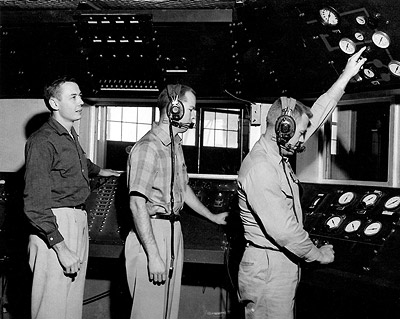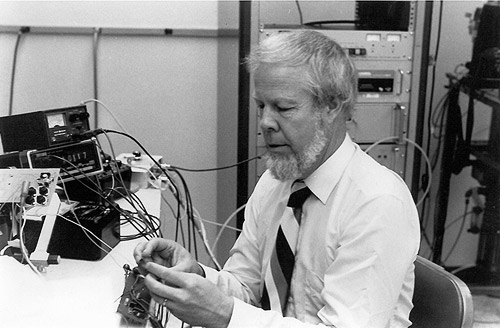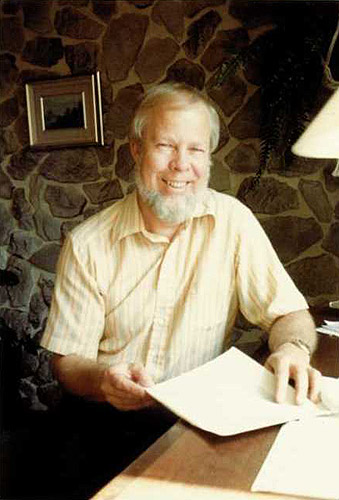Don’s professional career began with applied research work on combustion and supersonic inlets with the USC Engineering Center (later, JPL). He played an essential part in the beginning of quartz crystal microbalance (QCM) research and development in the early sixties under the name of Celesco (and later, Berkeley Industries). The first QCM produced was for a momentum flux experiment with plasma flow. Realizing the potential value of QCMs for detecting molecular flux in both ground-based vacuum systems and in space, Don began developing a full spectrum of QCMs and their associated data collection equipment.
He was involved with NASA’s Space Shuttle, the 1971 Skylab program and various Air Force and international satellites in the early seventies, all using an early line of QCM Sensors. He also participated in the design and inspection of Japan’s NASDA Space Chamber in 1972 and the India ISA High Vacuum Chamber in 1982-83.
In 1985, Don and his wife Marie purchased the growing line of QCM sensors and founded a new company, dedicated to the perfection of his sensors and the continued research into the expanding field of contamination analysis. He called this new company, appropriately, QCM Research.


Through this new company, he developed cryogenic and thermoelectric versions of his sensors to meet the expanding needs of the industry for both materials labs and space flight use. He continued to participate in many flight programs, and was very proud to have his instruments included on the first Mars Rover and prominently displayed in Time and National Geographic magazines with his instruments on the covers. Even after retirement, Don continued to do the work he so loved the research and development of new and improved designs to meet challenging, new industries.
With two patents, one book and over seventy technical papers to his name, along with his involvement in many professional committees and societies, posthumous recognition by NASA and SPIE with lifetime achievement awards, his contribution to the industry, and to QCM technology in particular, can be seen throughout the world.

His love of his work, the friendships he made throughout his career, the joy he received from watching the many successes of his products and all the people he was able to help through them instilled in all of us who worked with him a sense of pride of accomplishment, and of ownership of our efforts. Don took every QCM failure personally, for he considered each QCM that made its way out our door as a piece of art, as perfect as we could possibly make it. He made that work ethic an integral part of what his company was about, and we continue to strive to meet his high standards.
A brilliant scientist, pioneer and respected leader, his legacy will live on in his family, in his company, and in his tremendous contribution to the industry.
